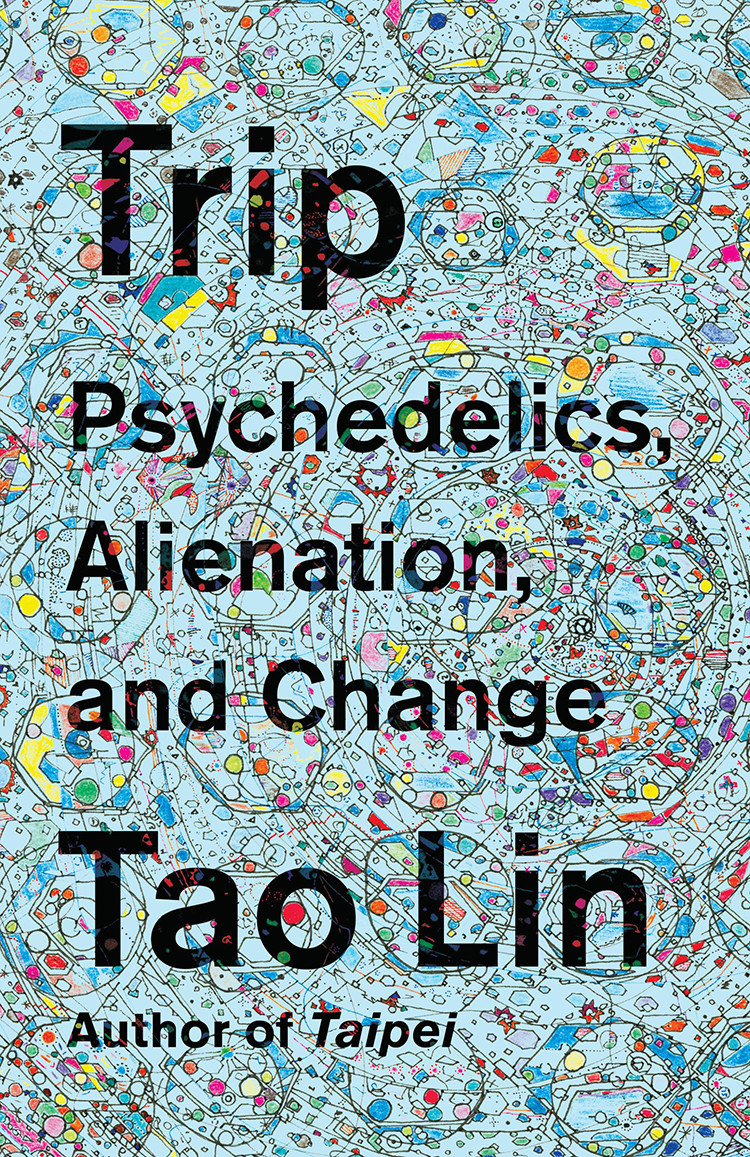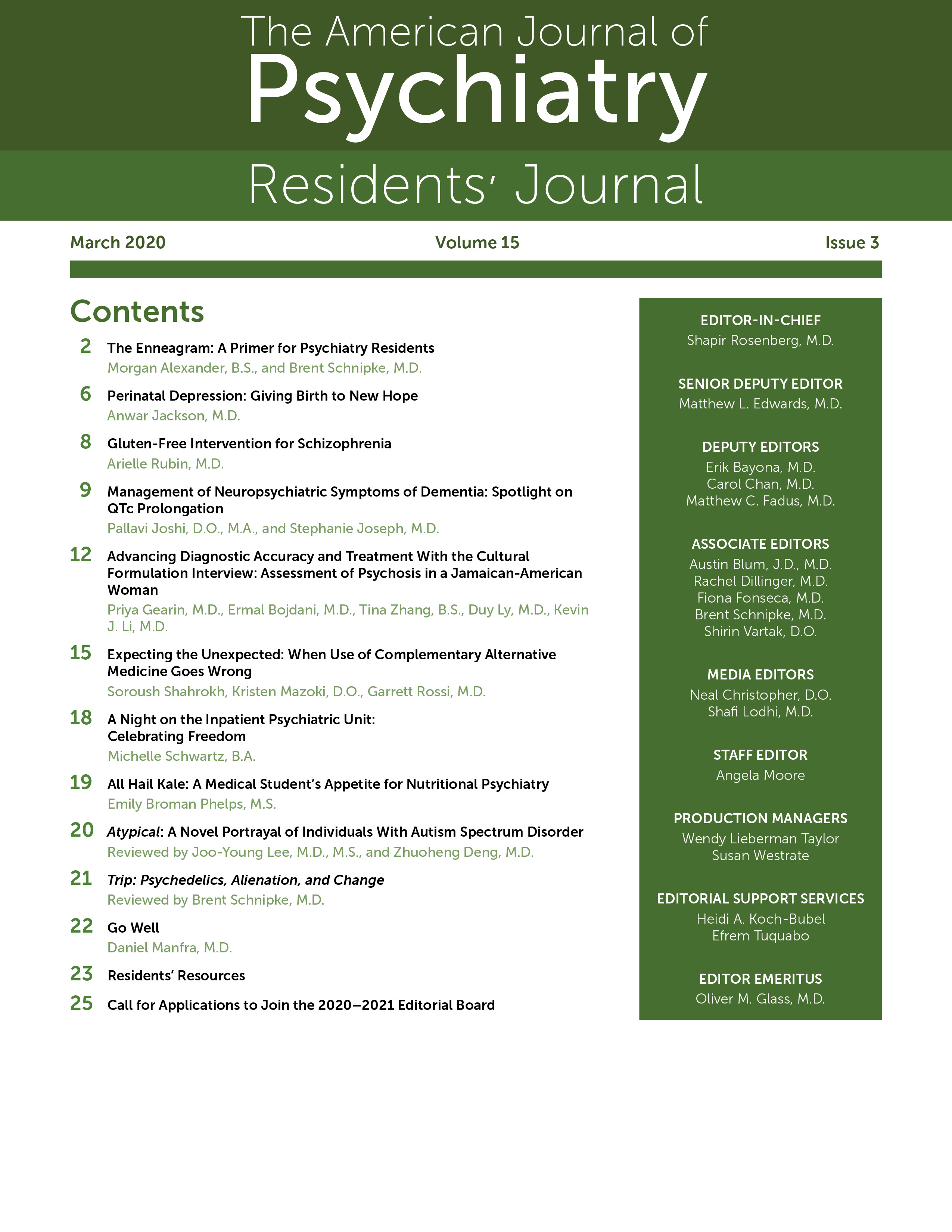In the cultural discussion of treatments for anxiety, depression, and addiction, there is probably no idea more controversial than the use of psychedelics. Although psychedelics have been used for most of human history (
1), formal investigation into their biological effects have primarily occurred in the past 70 years. This research began in the mid-20th century but was stopped for several decades after most psychedelics were made illegal in the United States. (
2) In recent years, research on their specific utility in treating mental illness has reemerged, partly because of promising early data on the neurobiology of psychedelics (
3) and partly because more individuals have shared their experiences. This anecdotal evidence has limitations compared with peer-reviewed scientific inquiry, but for now it is nearly all we have. Although limited research is approved at several institutions, most psychedelics remain schedule 1 substances.
This history is one of the many topics Tao Lin explores in his book, Trip: Psychedelics, Alienation, and Change. Although he devotes a chapter to the question "Why are psychedelics illegal?" this is not necessarily the focus of the book; indeed, it would be difficult to pick a focus. Instead, Trip is a 300-page exploration of loosely connected experiences told in shifting styles, which all amount to a candid story about personal struggles, changing worldview, and an experiential journey with psychedelics.
This book is not a rigorous literature review or even thorough journalism. Lin avoids organized arguments, instead musing (or rambling) and at times making strong statements without providing background information. This makes his claims difficult to follow for the uninitiated reader;
Trip is better read as a collection of interesting stories. The most thought-provoking portions of the book and most valuable for the psychiatrist-in-training are the firsthand accounts of experiences with psychedelic substances, including salvia, psilocybin, and DMT. Lin's descriptions of their effects are fascinating. His speculations regarding the subsequent improvements in his life are, for him, further evidence that psychedelics have a therapeutic benefit. In addition, Lin provides some scientific background on each, although the legitimacy of his claims—particularly his repeated claims that psychedelics have no negative effects and are absolutely not dangerous—warrants further investigation. The emerging research on psychedelics' role in clinical psychiatry mirrors the early research: psychedelics likely can have a beneficial role, but the context in which they are used is an essential component of their safety (
4,
5).
In contrast to these useful narratives are long sections of the book that have little relevance to psychedelics and could probably be skimmed or skipped. I suspect they are personally meaningful to the author in the context of his changing worldview, which he attributes to psychedelics and thus are included, but they largely detract from a central focus.
Trip may be useful to further conversations around the perceptions and use of psychedelics, but it is not likely the best source. The chapters detailing accounts of psychedelic use are useful, especially until larger-scale studies can validate "trip reports" such as these. For me, the primary value of this book was to pique my interest and motivate me to look for more to read, including books and recent research on psychedelics. Lin emphasizes the importance of seeking firsthand knowledge and questioning everything that has been taught—and to that end I agree and am motivated to learn more—although for now, I will stick to others' accounts of their firsthand effects.

